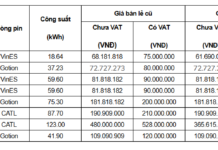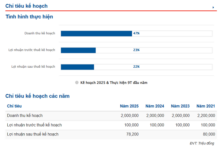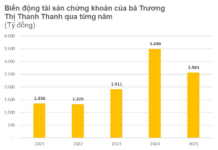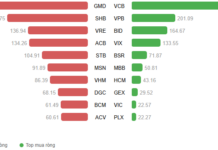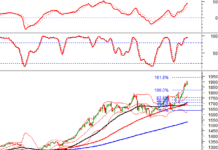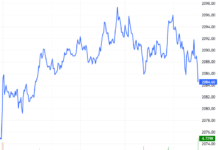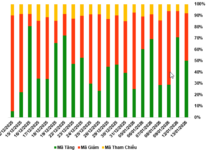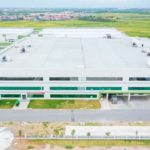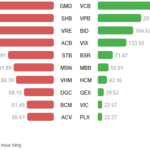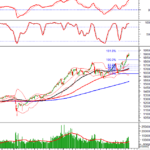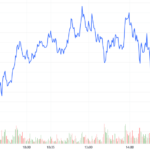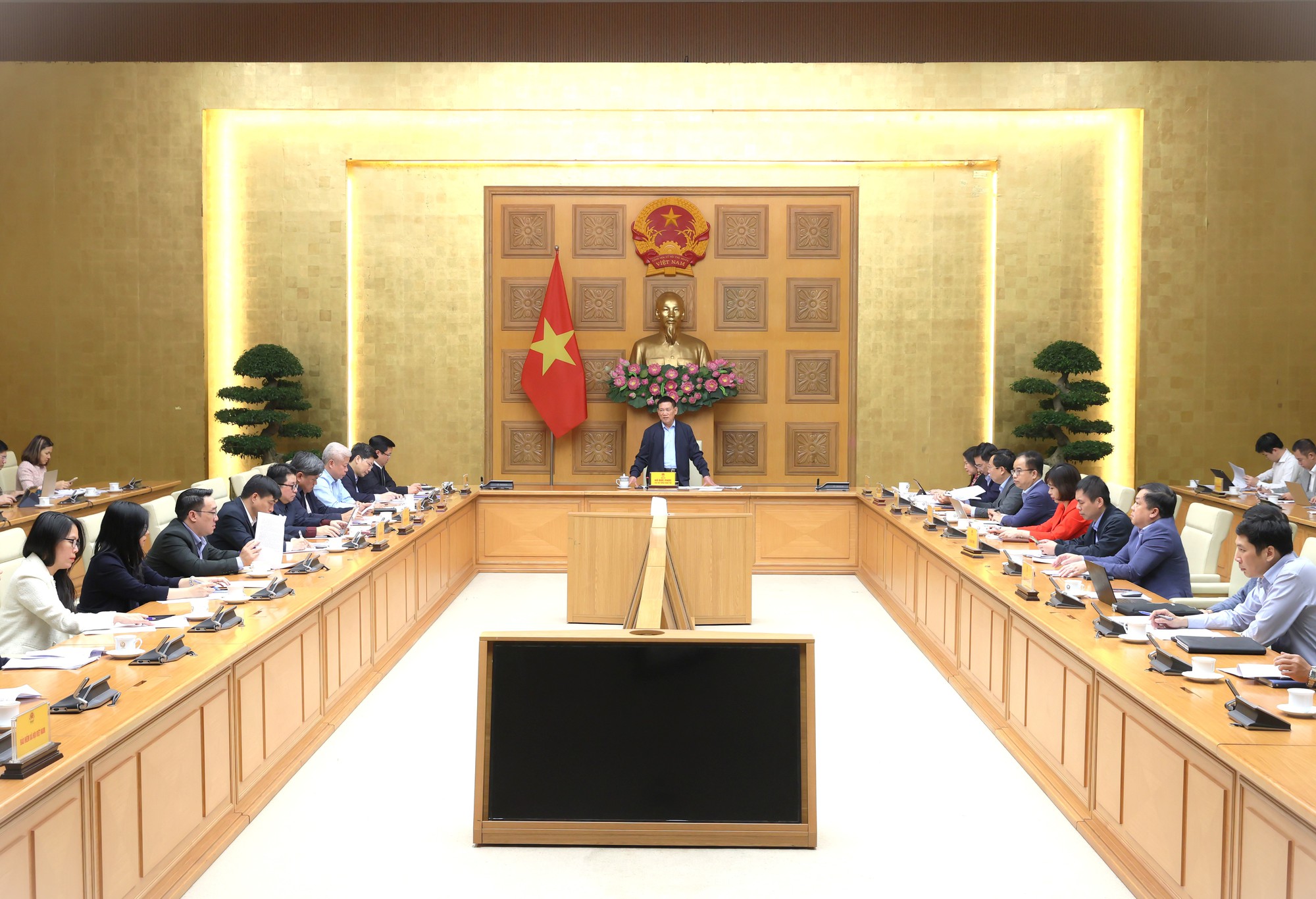
Deputy Prime Minister Ho Duc Phoc chaired the meeting of the Price Management Steering Committee – Photo: VGP/Tran Manh
The Ministry of Finance’s report indicates that, over the first 10 months of 2025, market price movements have largely followed annual trends. Most months saw a slight increase in the CPI, typically around 0.2% or less. The average consumer price index for the first 10 months of 2025 rose by 3.27% compared to the same period in 2024.
During the same period, the domestic goods market remained stable, with supply adequately meeting consumer demand and supporting business operations, particularly during peak consumption periods.
According to the General Statistics Office, the total retail sales and service revenue for the first 10 months reached 5,773 trillion VND, a 9.3% increase compared to the same period in 2024. This highlights a significant improvement in market purchasing power.
Inflation over the first 10 months of 2025 remained under control, within the targets set by the National Assembly and the Government. Additionally, price adjustments were implemented for certain state-managed goods and services in line with market roadmaps.
The Ministry of Finance also provided detailed reports on gold market management and price regulation for essential goods such as gasoline, LPG/Gas, electricity, transportation services, construction materials, rice, animal feed, fresh food, fertilizers, healthcare services, education fees, textbooks, real estate, land use rights, postal and telecommunication services, and proposed wage adjustments.
Based on forecasts of factors influencing price levels and those mitigating such pressures for the remainder of 2025, the Ministry of Finance has outlined two scenarios: Scenario 1 projects an average CPI increase of approximately 3.3%, while Scenario 2 anticipates a rise of around 3.5% compared to 2024. The ministry has also proposed focused measures for price management and regulation in the upcoming period.
During the meeting, representatives from the Government Office, the State Bank of Vietnam, the Ministry of Construction, the Ministry of Agriculture and Environment, the Ministry of Health, the Ministry of Home Affairs, the Ministry of Education and Training, the Ministry of Industry and Trade, and the General Statistics Office expressed unanimous agreement with the Ministry of Finance’s report. They acknowledged that the report comprehensively reflects the country’s macroeconomic landscape, offering thorough analysis, assessments, and forecasts, along with proposed solutions for price management and regulation moving forward.
Representatives from various ministries and sectors also provided insights and evaluations on the pricing of essential goods and services, including fresh vegetables, fruits, fresh food, beverages, rice, transportation services, pharmaceuticals, healthcare services, tuition fees, textbooks, household items, fuel, energy, gold, real estate (apartments, land plots, private homes, rental properties), exchange rates, interest rates, credit growth, and inflation. They contributed suggestions for solutions aimed at fostering economic growth, controlling inflation, and managing prices in accordance with set objectives.

Deputy Prime Minister Ho Duc Phoc: Focus and persistently implement CPI management solutions for 2025 according to Scenario 1, targeting an increase of approximately 3.3% compared to 2024 – Photo: VGP/Tran Manh
Strive for a 2025 CPI increase of approximately 3.3% according to Scenario 1
Concluding the meeting, Deputy Prime Minister Ho Duc Phoc requested the Government Office and the Ministry of Finance to fully incorporate the opinions expressed, finalizing the price management plan for the remaining months of the year and early 2026.
The Deputy Prime Minister emphasized that price management efforts over the first 10 months of 2025 have achieved the targets set by the National Assembly and the Government. However, he cautioned against complacency, urging continued focus on effectively implementing measures to curb inflation, ensure macroeconomic stability, and promote growth.
Regarding future price management and regulation objectives and solutions, the Deputy Prime Minister called for a concentrated and persistent approach to implementing CPI management measures for 2025 under Scenario 1, aiming for an increase of approximately 3.3% compared to 2024. He also stressed the need for tight control over goods directly impacting people’s livelihoods, such as electricity, water, and food.
He instructed ongoing monitoring of the global economic situation, particularly in partner countries, to proactively devise appropriate, timely, and effective solutions. Close supervision of domestic market fluctuations is essential to prevent shortages and price surges.
Highlighting the importance of public investment disbursement in the final months of the year, the Deputy Prime Minister urged provinces to implement measures ensuring the supply of construction materials (sand, stone, gravel) for project execution.
He also emphasized the need to maintain supply-demand balance, especially for essential goods like food, fuel, raw materials, and real estate, ensuring availability in flood-affected areas and for the upcoming Lunar New Year celebrations.
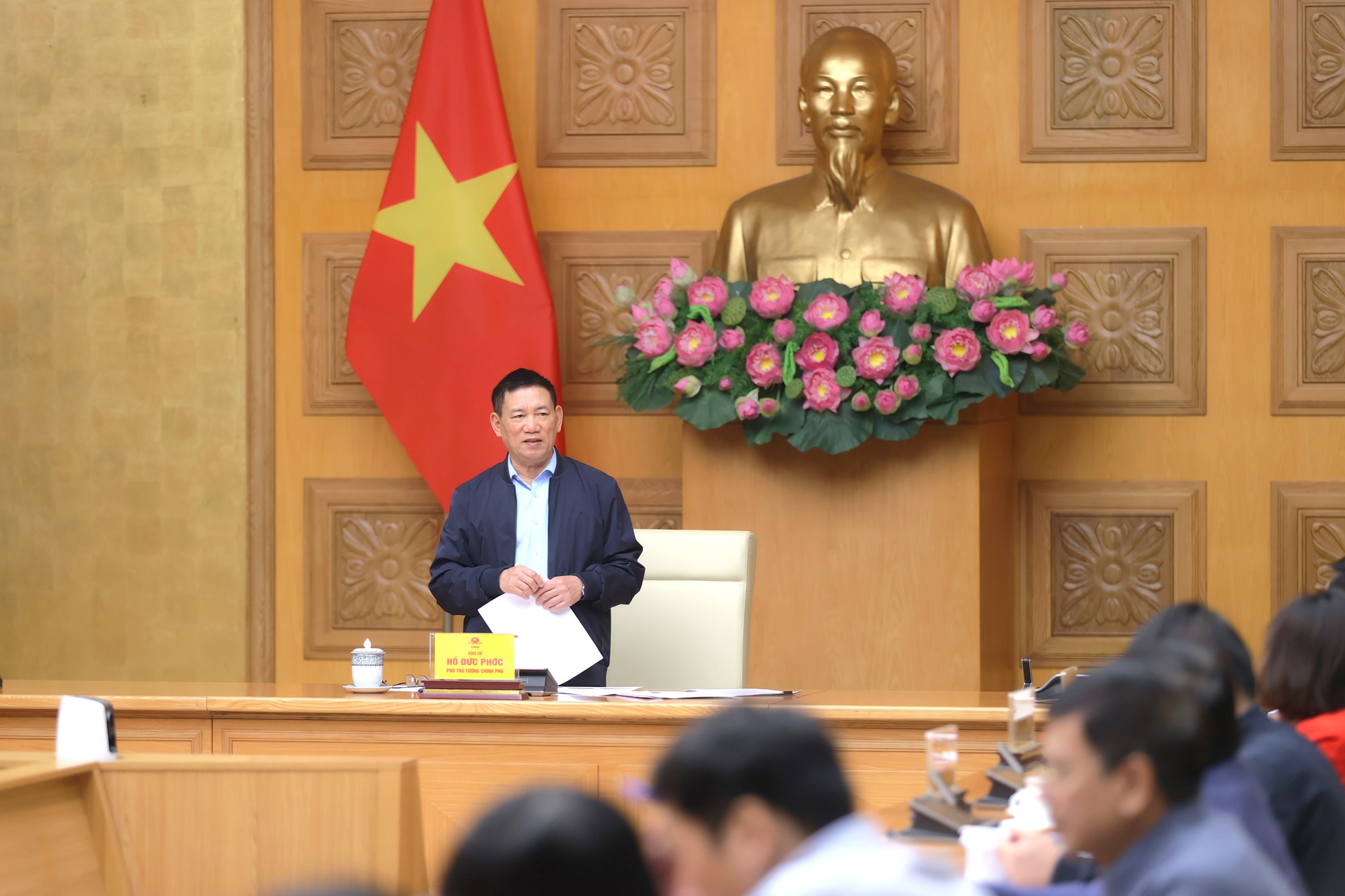
The Deputy Prime Minister urged ministries, sectors, and localities to swiftly implement solutions for post-flood disaster recovery and resume production and business activities – Photo: VGP/Tran Manh
He advocated for seamless coordination in fiscal and monetary policy implementation alongside other policies.
He recommended formulating tax and fee policies aligned with reality, directing credit towards substantive production and business activities, maintaining reasonable interest rates, stabilizing exchange rates, and effectively managing gold price regulations.
Flexible use of control and price stabilization tools linked to essential goods and consumption groups was also advised.
The Deputy Prime Minister stressed the importance of enhancing information dissemination and transparency regarding price trends and government price management efforts, particularly for critical materials and essential goods affecting production and people’s lives. This aims to curb inflation expectations and stabilize consumer and business confidence, especially during year-end holidays.
Deputy Prime Minister Ho Duc Phoc also addressed social housing price management, real estate pricing, and specific goods, instructing ministries, sectors, and localities to intensify efforts against smuggling and trade fraud. He urged swift action in post-flood disaster recovery and the resumption of production and business activities.
Deputy Prime Minister Hồ Đức Phớc: Aiming for a 3.3% CPI Increase by 2025
At the Steering Committee meeting on price management on the afternoon of November 21, Deputy Prime Minister Hồ Đức Phớc urged all ministries to remain vigilant, prioritize the control of essential goods, and closely adhere to the Consumer Price Index (CPI) scenario for 2025, targeting a 3.3% increase compared to 2024, as the market enters its year-end peak.
State-Owned Enterprises Confront Six Major Challenges
State-owned enterprises are grappling with significant challenges, including an unclear leadership role, limited ability to create value chains and forge partnerships with the private sector, and untapped capital and asset potential due to restrictive legal frameworks. Their proactive stance and competitiveness remain low, with many business decisions delayed by lengthy approval processes, hindering timely opportunities.





